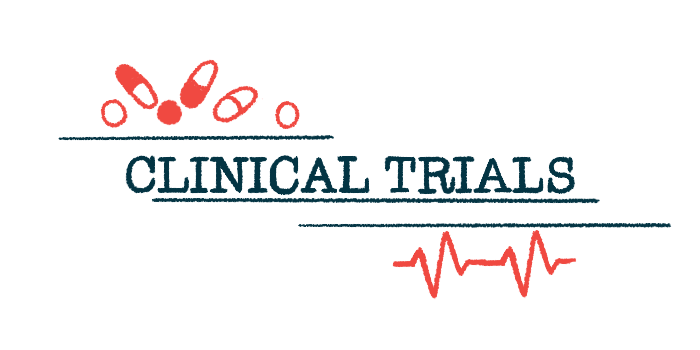NP-120’s Efficacy Supported by Full Data Analysis of Phase 2a Trial
The therapy's data set is 'excellent' and merits 'a much larger trial,' researcher says

NP-120 (ifenprodil), an investigational treatment for idiopathic pulmonary fibrosis (IPF) and chronic cough, continues to demonstrate an ability to preserve lung function and ease cough, according to analyses of secondary goals in a Phase 2a trial.
Most of these analyses related to patient-reported outcomes, supplementing positive top-line data from the objective measures of lung function and cough reported by Algernon Pharmaceuticals earlier this summer. Together, these findings now comprise the full data set from the trial.
“This data, when added to the topline data already reported, now provides a more complete picture that shows just how effective Ifenprodil was in this Phase 2a study,” Christopher J. Moreau, CEO of Algernon, said in a press release.
NP-120 works by blocking N-methyl-D-aspartate receptors, in particular their 2B subunit. These receptors are present on lung and immune cells, where they are linked to signaling pathways implicated in cough and tissue scarring — two hallmarks of IPF. The medication was originally developed by Sanofi to treat circulatory disorders.
The Phase 2a trial (NCT04318704) enrolled 20 people with IPF and persistent, hard-to-treat cough who were given oral NP-120 (20 mg) three times daily for 12 weeks, or about three months.
The trial had two main goals: to determine the treatment’s effect on cough frequency, as measured by a portable cough monitor, and on lung function preservation, as measured by the forced vital capacity (FVC) — a lung function parameter that measures how much air can forcibly be exhaled in a breath.
Top-line data indicated the trial met its main goal of preventing lung function declines, with more than half of the patients (65%) experiencing a stabilization or improvement in FVC values after 12 weeks — a significant improvement from the 40% of patients expected to experience these outcomes if they were instead given a placebo. Expected placebo responses were based on historical data.
While 30% of participants experienced a 50% reduction in mean cough per hour frequency over a 24-hour period, this was not a significant improvement over the 25% expected response rate with a placebo.
But additional analyses indicated that when using a different type of mean, called the geometric mean, to analyze the data, cough frequency did fall by a statistically significant 32% after four weeks and by 39.5% after 12 weeks compared with the study’s start.
What did the new analysis find?
Now, Algernon has reported that additional secondary trial goals have been met. Specifically, the company noted these evaluations supported the earlier finding that lung function was preserved with NP-120 treatment.
No significant declines over 12 weeks of treatment were observed in the assessment of diffusing capacity for carbon monoxide, which is an estimate of how well lungs can transfer oxygen to the bloodstream.
Patient-reported measures of lung function were also positive, with no changes observed in the modified Medical Research Council dyspnea scale, a self-reported measure of breathlessness experienced during day-to-day activities. Patients also experienced an increase of seven points in the King’s Brief Interstitial Lung Disease Questionnaire, a self-reported measure of health status in patients with lung disease, reflecting an overall improvement.
Secondary goals relating to patient-reported cough were also met, including a significant reduction in the cough visual analogue scale, an assessment of cough severity, with lower scores indicating less severe cough. A 10.05-point improvement was also observed for the Leicester Cough Questionnaire, which pertains to quality of life associated with chronic cough.
NP-120 was well-tolerated, with an average treatment compliance rate of 90%. No new safety concerns were identified in the new analyses.
“The full data set is excellent,” said Martin Kolb, MD, PhD, professor of respirology at McMaster University and global expert on IPF.
“Of course, patient numbers are low, but it is encouraging to see that all is going in the right direction. This data enhances my belief that this drug merits investigation in a much larger trial,” Kolb added.
Full trial results will be presented at the 21st International Colloquium on Lung and Airway Fibrosis taking place in Iceland in October, and at the 9th American Cough Conference in Reston, Virginia, in June 2023.
Meanwhile, Algernon is planning for the next phase of NP-120’s clinical development.
“We look forward to presenting the data to the U.S. [Food and Drug Administration], including applying for orphan designation, the filing of a pre-[investigational new drug] application for a Phase 2b IPF with cough trial, as well as an application for Breakthrough Therapy designation,” Moreau said.
Orphan and breakthrough designations are both intended to speed the therapy’s clinical development toward regulatory approval.









